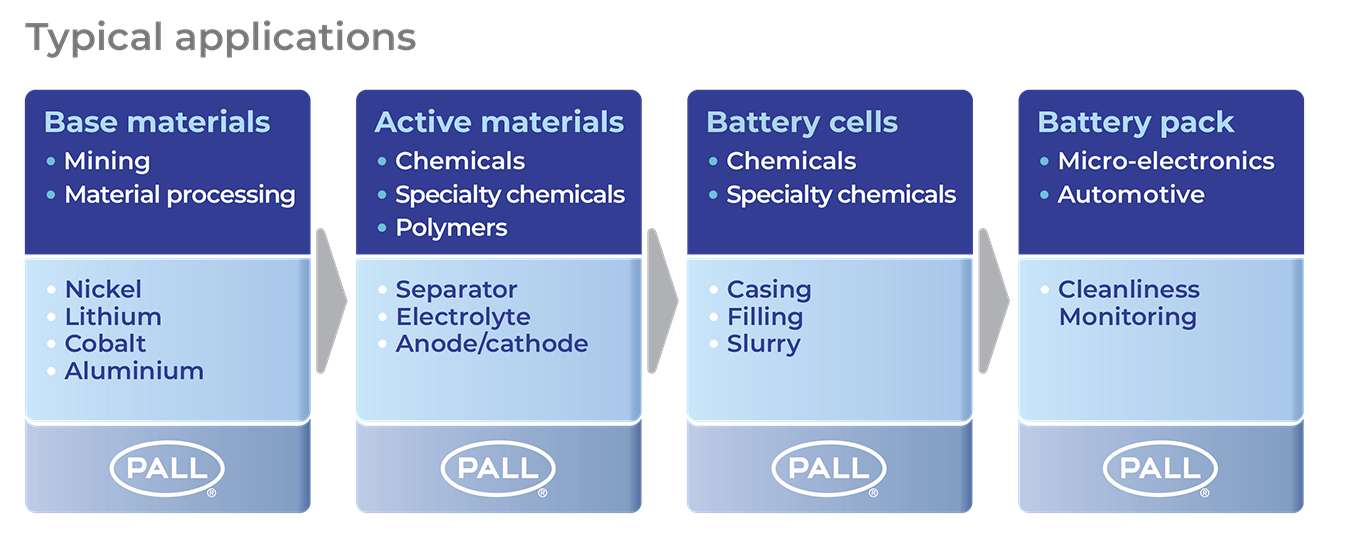
Powering the Next Generation of Your EV Battery Technology
May 04, 2022
Filtration technology is crucial in enabling better quality control and improving the efficiency of the entire lithium-ion battery production process. From the extraction of raw materials to the final assembly of battery cells, lithium-ion batteries must adhere to strict cleanliness standards and regulations. Any impurity in the battery can have a negative impact on performance.
Common issues linked to battery impurities include:
- Battery overheating resulting in fires
- Lower charging capacity
- Reduced charging cycles
- Problems operating at lower temperatures
Read on to discover more about some of the challenges facing the EV battery production value chain.
Lithium Value Chain
For each segment of the value chain, filtration and separation play a vital role in meeting process goals for yield, purity, and reliability.
Base Materials: Starting with raw materials, mined ore or brine that contains a high amount of lithium salts will make up the lithium value chain. Different processing is required depending on the source, but ultimately, the process involves substantial purification achieved through various forms of filtration.
Active materials: There are three components that are at most risk of contamination during cell manufacture
- Separators
- Cathode active materials (CAM), and
- Liquid electrolytes.
Separators must meet technical specifications for cleanliness, quality and uniformity, and polymeric films must not contain any metallic particles which upon contact with other parts of the battery cell could cause and electrical short circuit.
Cathode active materials, comprising a mix of metal oxides containing lithium, undergo a production process of multi-chemical transformation stages involving solid, liquid, and gaseous products, all of which are subject to stringent quality controls for cleanliness.
Finally liquid electrolytes require filtration to achieve particulate removal of between 0.45µm - 2µm rating to meet the required cleanliness standards
Battery cells/packs also use chemicals and specialty chemicals that must be at rigorous purity levels for preparing the casing, in filling operations, and preparing slurries. And finally, the battery pack will have micro-electronics and automotive components and require cleanliness monitoring.
When lithium-ion battery manufacturers bring materials science experts like Pall early into the design process, we can help ensure the right filtration technologies are deployed to minimize some of the potential failure points of EV batteries, improve performance and reduce costs.
To learn more, visit EV Battery Production or checkout our On-demand webinar detailing the different filtration and separation solutions Powering The Next Generation Of Your EV Battery Technology.
Thank you for signing up
Thank you for signing up to the Pall Industrial Blog.
- Category
- Author
- Sort By


